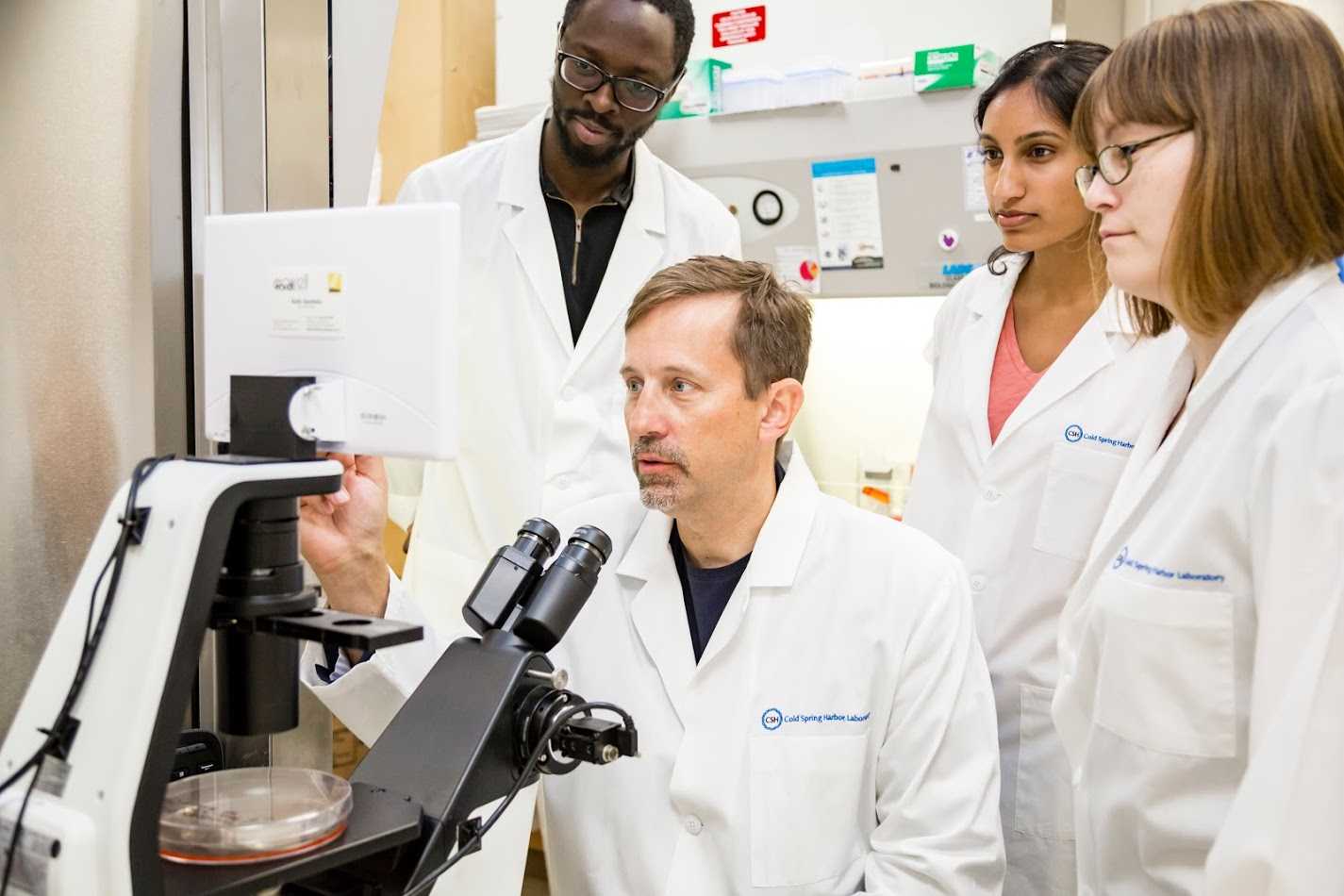Lustgarten-funded Research Leads to Promising New Treatment
Topic: Therapeutics

New combination of three existing immunotherapy drugs may eliminate pancreatic tumors
By Stephanie Elsea
When it comes to fighting and destroying infected or diseased cells, T cells are the heroes. The body’s front line of defense, T cells are like soldiers deployed at the first sign of trouble to attack and block cancer cells. But like any hero, T cells can grow tired and lose effectiveness over time. That process is known as exhaustion.
Every good military needs a general to determine the level of danger and deploy the appropriate resources. In the immune system, checkpoints keep T cells from becoming fully activated until they encounter a true “danger” signal. T cell checkpoints allow our immune system to mount an all-out assault to fight off disease, while preventing the immune system from doing damage to healthy parts of the body. Many tumors, particularly pancreatic cancer, find ways keep checkpoints switched on—effectively hiding from the immune system.
In some cancers, the introduction of checkpoint inhibitors can block the checkpoints and allow T cells to become fully active so they can get back to killing cancer cells. Unfortunately, checkpoint inhibitors have had little effect on pancreatic tumors. Some researchers thought it was because pancreatic tumors had fewer neoantigens, or cancerous proteins, which would limit the number of T cell targets. However, a recent Lustgarten-funded study found many pancreatic tumors did express the neoantigens.
Scientists at the Lustgarten Foundation Dedicated Research Lab at MIT suspected a different process was also at work to disable T cells in pancreatic cancer—and they were right. Unlike most cancers, pancreatic cancer cells express a protein called CD155, which activates a T cell receptor called TIGIT. And TIGIT exhausts the T cells leaving them unable to mount an attack on the pancreatic cancer tumor. Using mouse models, researchers at MIT confirmed their suspicions.
William Freed-Pastor, MD, PhD, an MIT senior post doc, said the next step was to test a variety of combinations of experimental drugs they believed might work as checkpoints in pancreatic cancer. A combination of three of the drugs to stimulate the immune system, inhibit T cell checkpoint and block exhaustion signals (CD40, PD-1 inhibitor and TIGIT inhibitor) seemed to do the trick. The effect on mice models was dramatic, as pancreatic tumors shrank in nearly 50% of those tested and completely disappeared in 25%! And, equally exciting, the tumors did not regrow post treatment!
Dr. Pastor is the lead author of a paper published this month in Cancer Cell that shares the research findings and next steps. A story also appeared in the Boston Herald.
To test if the success in mice can be translated to the clinic, Dr. Freed-Pastor is collaborating with Dr. Osama Rahma at the Dana Farber Cancer Institute who will lead a clinical trial to test this novel combination of drugs in pancreatic cancer patients. This is one of three clinical trials funded through the Foundation’s Clinical Accelerator Initiative (CIA), created to shorten the time from clinical trial concept to launch. The trial is expected to launch later this year.
“The work from Dr. Freed-Pastor and his colleagues is an excellent demonstration of how fundamental research into the biological mechanisms of this disease can be quickly translated into potential therapeutic approaches with the right mentality and collaborations in place,” said Andrew Rakeman, PhD, Lustgarten Foundation VP of Research. “We are proud to have supported this early work, and will continue to fund this exciting project through the next phase of the clinical trial led by Dr. Osama Rahma at Dana Farber.”
To learn more about the promising research being funded through the CIA, register now for LustgartenLIVE! Clinical Advances From the Lab to You at Noon EST on Wednesday, Sept. 22. World-renowned pancreatic cancer researchers and clinicians, Dr. Elizabeth Jaffee of Johns Hopkins and Dr. Brian Wolpin of the Dana-Farber Cancer Institute, will explain the Foundation’s critical role in moving research from the lab to the clinic, advancing clinical trials and better therapies.

